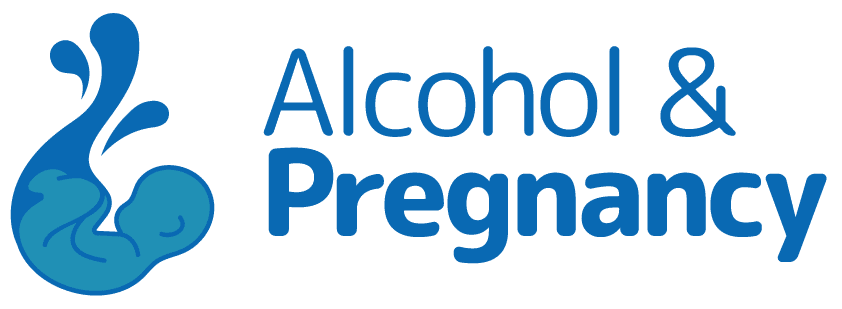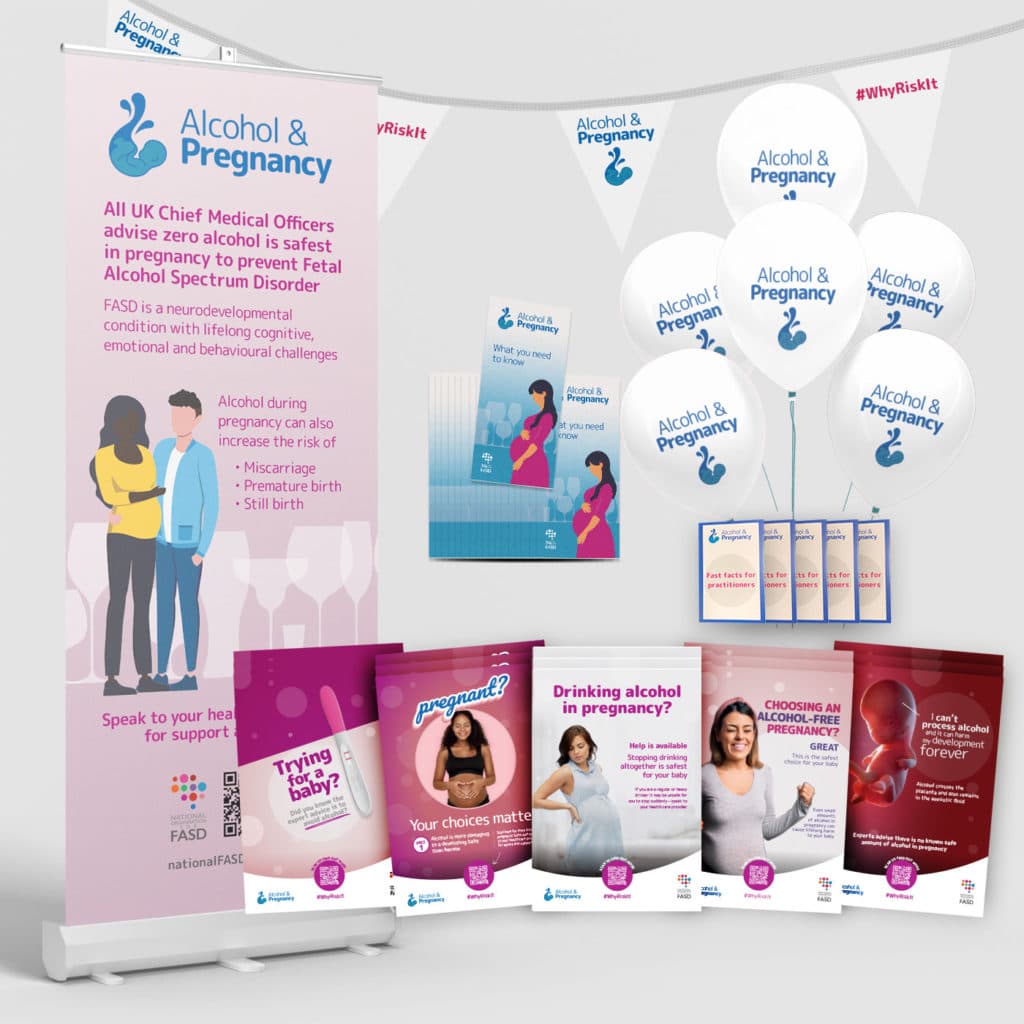
Also in this section:

To learn more about FASD click here.
The effective conversations that you have about alcohol and pregnancy can help to reduce the harm caused by prenatal alcohol exposure, including FASD.

Ask ALL pregnant women about alcohol use
Say it’s safest to avoid alcohol in each appointment
Support this with written advice
Indicate the risks associated with prenatal alcohol exposure
Stop and record any maternal alcohol history
Try to help via signposting to further support and referrals
Healthcare professionals are required to give pregnant women information about the risks associated with drinking alcohol in pregnancy. This should be both verbal and written and throughout the pregnancy, not just at the first appointment (NICE QS204, 2022). Leaflets are available to support this.
Check out our new leaflets – they are specifically designed to meet current guidelines.
Guidance from the UK Chief Medical Officers regarding alcohol and pregnancy states:
If you are pregnant or planning a pregnancy, the safest approach is not to drink alcohol at all, to keep risks to your baby to a minimum. Drinking in pregnancy can lead to long-term harm to the baby, with the more you drink the greater the risk.
It is essential that the advice provided by healthcare professionals is up to date, consistent and evidence-based, in addition to the advice provided on other lifestyle choices such as drugs, smoking and nutrition.
Healthcare professionals are also required to ask throughout pregnancy whether there has been any alcohol use and to record it in the maternal notes. This is in order to offer personalised care for the mother but also to aid diagnosis of FASD in the child if they are affected. Early intervention is the most effective way of improving the outcome for both mother and baby. An empathetic, non-judgemental approach encourages a positive response. No matter whether a woman is newly pregnant or nearly full-term, her baby will always benefit when she stops drinking.
However, It is critical for regular or dependent drinkers to have a supervised withdrawal from alcohol.
It is also important for mothers-to-be to have support from those around them such as a partner, close family members and friends. When everyone is informed about the risks, better support can be in place for pregnant women.
It is important to be compassionate and to take a no-shame, no-blame approach when talking about prenatal alcohol exposure. Women may have had an alcohol exposed pregnancy for many reasons, and your support may prevent further harm.
National FASD
Document any confirmed alcohol exposure in the maternity health record, including quantity and type of alcoholic drinks as well as the frequency and pattern.
It’s a sensitive conversation – what should I say?
Use blame-free, non-stigmatising language to discuss alcohol-exposed pregnancies. See for example: FASD: Preferred UK Language Guide.
Some pregnant women will need more information about the risks of harm caused by alcohol in pregnancy in order to make informed decisions.
It is believed that the fetus is affected by alcohol in two ways.
UK-wide guidance based on latest scientific evidence
“If you are pregnant or planning a pregnancy, the safest approach is not to drink alcohol at all, to keep risks to your baby to a minimum. Drinking in pregnancy can lead to long-term harm to the baby, with the more you drink the greater the risk.”
“Health visitors and midwives have reported anxiety about discussing alcohol and a lack knowledge about alcohol screening and guidance…Frontline staff should:
Guidance in effect across Scotland, England and Wales
“The number of type(s) of alcoholic beverages consumed (dose), the pattern of drinking and the frequency of drinking in pregnancy should all be documented by the midwife in the antenatal notes and communicated to the GP and Health Visitor in Transfer of Care documentation.”
Measures to improve quality of care across England and Wales (and best practice nationally)
“Midwives and other healthcare professionals should give women clear and consistent advice on avoiding alcohol throughout pregnancy, and explain the benefits of this, including preventing fetal alcohol spectrum disorder (FASD) and reducing the risks of low birth weight, preterm birth and the baby being small for gestational age…Pregnant women are asked about their alcohol use throughout their pregnancy and this is recorded.”
FASD Health Needs Assessment for England
“Successful behaviour change interventions…need to alter or work with…psychosocial determinants to enhance the autonomy of an individual and increase the chance of an intervention bringing about a positive change in their life.”

Our new Alcohol and Pregnancy Toolkit is now available (including a free e-course).
Please feel to subscribe to our mailing list at the bottom of the page to stay up-to-date!
PHE’s document on alcohol in pregnancy
This includes statements on talking with pregnant women about alcohol and identifying alcohol-exposed pregnancies.
September 2021 journal article by Danijela Dozet, Larry Burd & Svetlana Popova in the International Journal of Mental Health and Addiction
Children and young people exposed prenatally to alcohol
(2016)
Helping parents-to-be go alcohol-free – from the Greater Manchester Integrated Care Partnership
Blackpool’s Better Start Programme